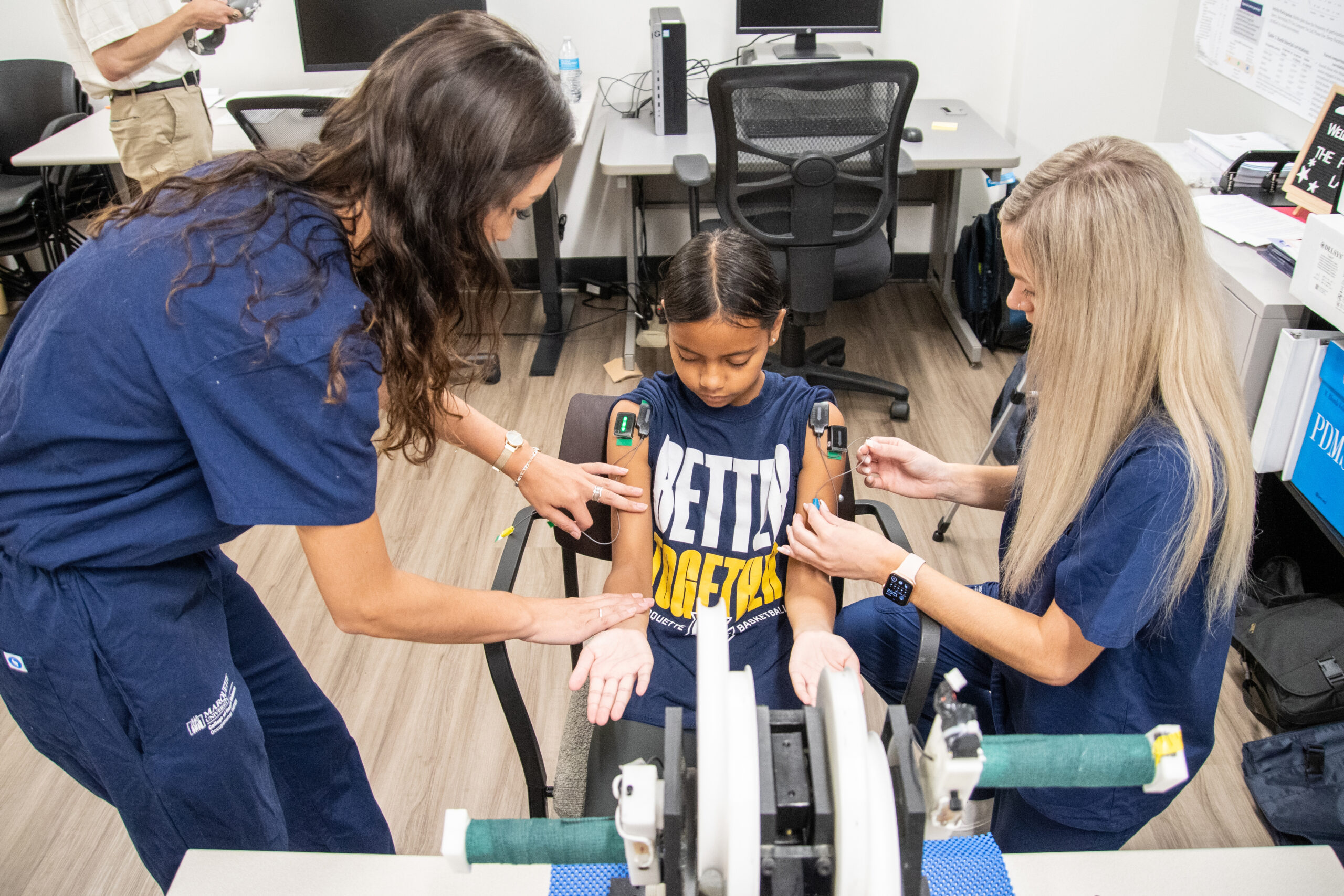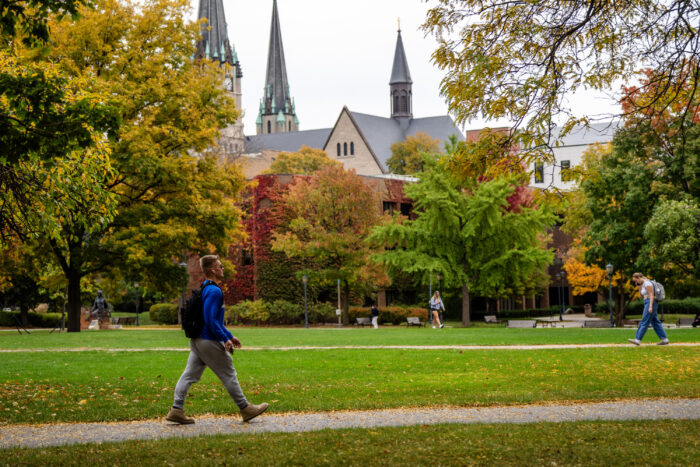Accelerated program, rewarding work highlight emerging occupational therapy doctorate program
By Alex Nemec, marketing communication specialist in the Office of University Relations
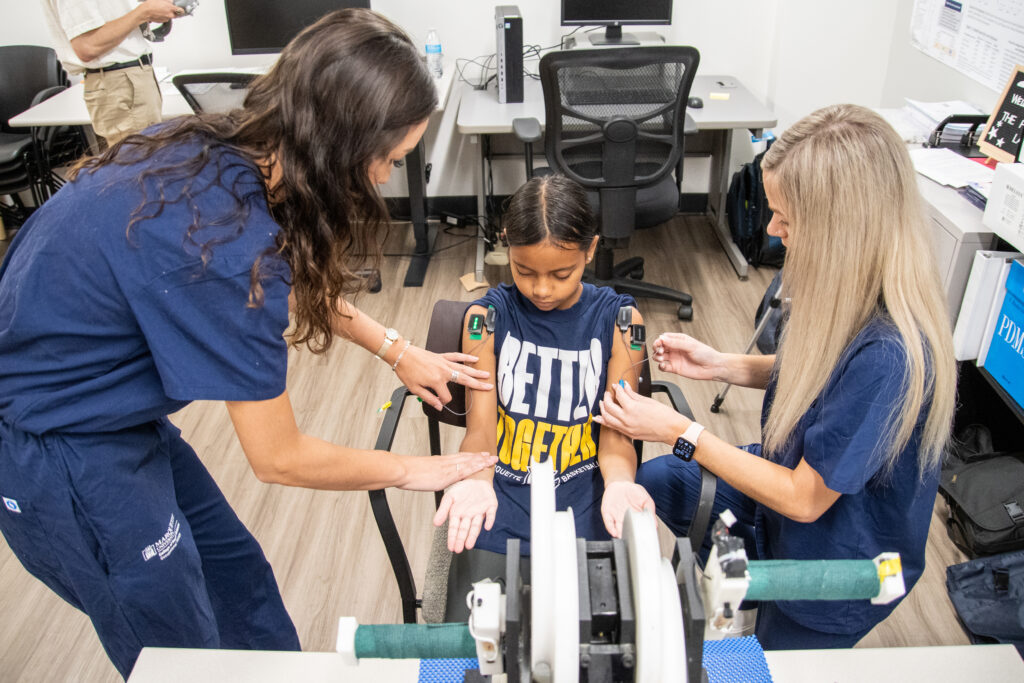
Dr. Adolf Meyer was one of the most renowned psychiatrists of the 20th century, praised by his peers and historians for being among the first psychiatrists to reinforce occupational therapy’s connection between an individual’s activities and their mental health.
In the lobby of Marquette’s 1700 Building, where occupational therapy doctoral students working toward their degree, Meyer’s fitting words hang:
“Above all, the patient is a person.”
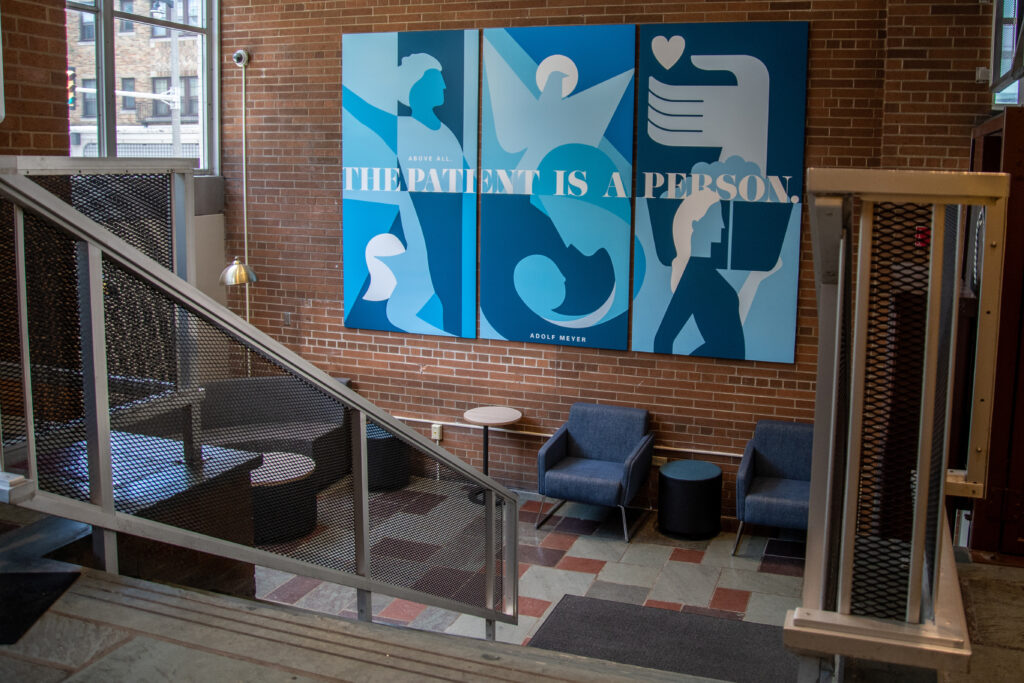
Despite its name, occupational therapy doesn’t focus on therapy as it pertains to one’s job. Rather, “occupation” refers to anything important to an individual, such as work, education, sleep or getting around.
“The great thing about what we do is we look at what is meaningful in the patient’s life and we focus on that,” says Dr. Christine O’Neill, chair of the OTD program.
Like people, no two injuries are alike. So, while O’Neill and other OTD faculty teach students common practices and foundational therapies, students must be creative in developing unique, individualized treatment plans.
“That’s the beauty of the field,” O’Neill says. “The sentiment I tell my students is that if you’re getting bored in occupational therapy, you’re doing it wrong. We’re able to use music, art, exercise, games and all sorts of different media to accomplish the goal.”
OTD student Taylor Drost says tapping into her creative side is often challenging, but always rewarding.
“That’s really the profession in a nutshell,” Drost says. “Sometimes you have to scrap a plan and think on the fly for the sake of the client, but ultimately the creative side of the profession shows how much clients trust us and understand we’re doing what’s best for them in order to go home safely.”
A rewarding job anywhere
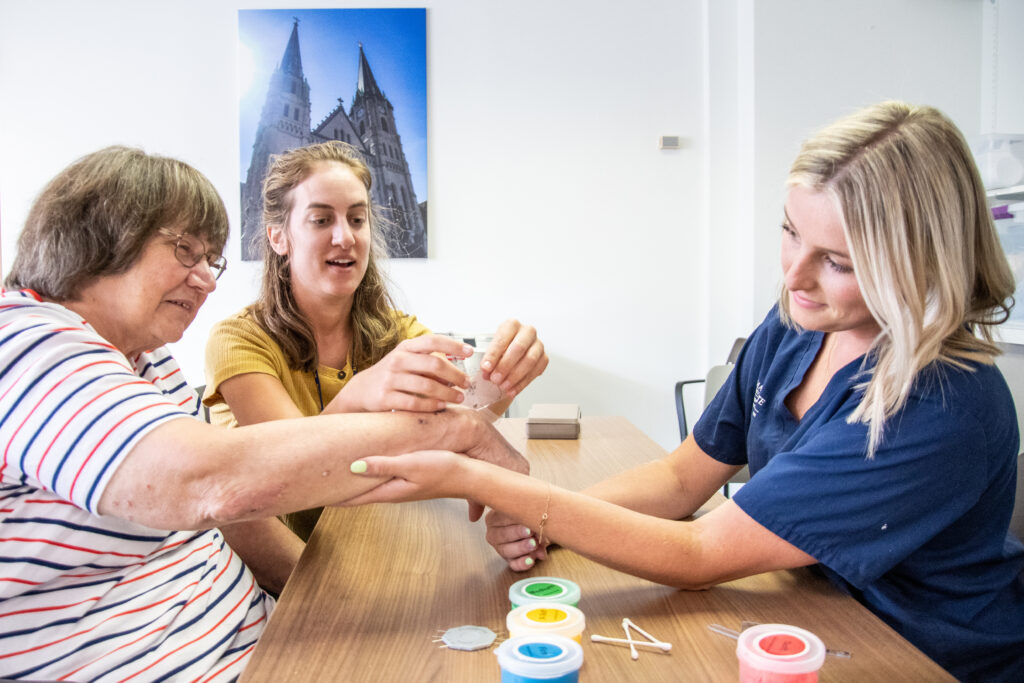
Occupational therapists can thrive in any environment where a patient needs assistance in recouping abilities they have lost due to a variety of circumstances including injury, disability and even incarceration.
Monali Adhikari is a third year OTD student who will be engaged in her capstone at Racine County Juvenile Detention Center — a new initiative at the facility.
Adhikari has always had a passion for helping underrepresented communities and believes occupational therapists can have significant impact in lowering reincarceration rates.
“I want to develop positive coping and stress management strategies for these kids who come from backgrounds with sensory issues and extensive trauma,” Adhikari says. “It’s important for occupational therapists to come in while these kids are beginning their transition between jail and returning home.
“It’s our responsibility to pave the way for these kids and give them the tools and support to find what is important to them and put them on the right track.”
Dr. Ann Millard, associate chair of the program, says the occupational therapy field is flexible.
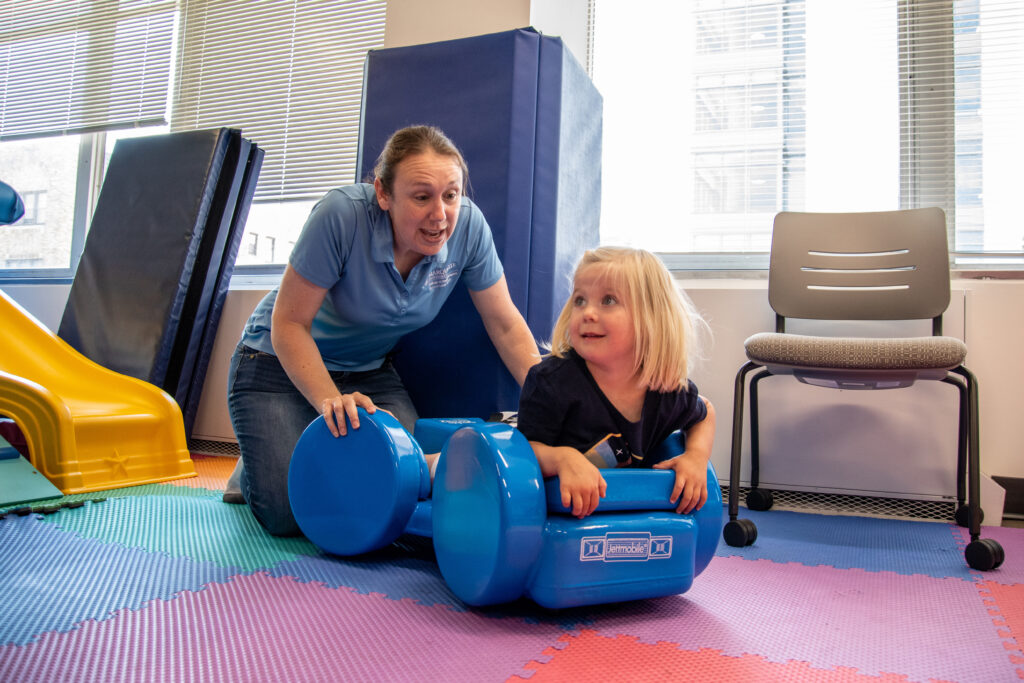
“You can work wherever you want because there’s a possibility for a job in any population,” she says.
O’Neill says her lasting memory as an occupational therapist came 20 years ago when she helped a medically unstable man who could barely sit up on the edge of the bed.
“He and I spent nine months working through his therapy every day,” O’Neill says. “After he was discharged, he visited me a few months later and he was able to walk an 18-hole golf course.
“To get somebody to enjoy life again and to bring joy back into somebody’s life, I don’t think there’s anything better in the world.”
Finish school, help the community sooner
With increasing financial pressures, most college students are eager to enter the workforce sooner. The OTD program understands this — Marquette undergraduates can apply for OTD’s unique 3+3 accelerated degree program.
The 3+3 program allows students to finish their doctorate degrees in six years — three years of undergraduate classes and three of postgraduate courses — rather than seven. According to O’Neill, students who wish to enter the program must complete undergrad prerequisites by the end of junior year. OTD students aren’t exclusively College of Health Sciences undergraduate majors either, O’Neill says.
“You can be a biomedical sciences major, a psychology major, we’ve had music and theater majors enroll, anyone can enroll so long as they’ve completed the prerequisites’,” O’Neill says. “Those students are priceless to our program because their eclectic background brings a different perspective and mindset to the classroom which helps their peers.”
To pair with their didactic work, students in the OTD program complete three semesters of fieldwork — one semester each in an adult, pediatric and mental health setting — which isn’t offered at other universities in the area.
“Students aren’t just observing occupational therapy during their fieldwork, they’re doing the work under the supervision of one of our skilled occupational therapists,” Millard says.“Our students are learning the practice in the classroom and then going out into the community and doing it. That concurrent learning is crucial in their development as occupational therapists.”
Drost, the student, says her fieldwork gave her a head start at her clinical rotation in an inpatient rehabilitation setting in Fayetteville, Arkansas.
“During my rotation, I have definitely seen my studies in the classroom and fieldwork pay off and work together to help clients return to their independence. This shows the hard work and commitment our professors have put into this program to prepare us for the future workplace.”
To learn more about Marquette’s Occupational Therapy Doctorate program click here.
